Hit & Stay is a american film of genre Documentary released in USA on 6 march 2013
Hit & Stay (2013)
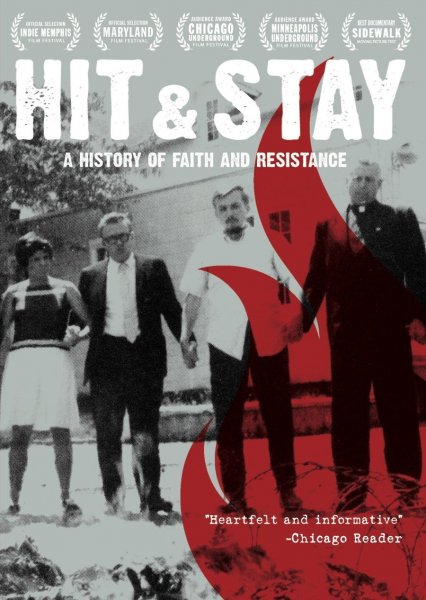
If you like this film, let us know!
- Infos
- Casting
- Technical infos
- Photos
- Videos
- Film quotes
- Characters
- Music
- Awards
Released in USA 6 march 2013
Length 1h37
OriginUSA
Genres Documentary
Themes Documentary films about war, Documentary films about historical events, Documentary films about politics, Political films
Rating67%










Hit & Stay is a 2013 documentary directed by Joe Tropea and Skizz Cyzyk. It looks at the actions of the The Catonsville Nine and The Baltimore Four taken in protest of The Vietnam War, and the influence of these actions and the activists behind them on subsequent progressive political protests. The press labeled this group "the Catholic Left." The film contains interviews with many of the activists who took part in these actions, as well some of the F.B.I. agents who monitored them. It also contains contemporary commentary on the influence of these actions from such names as Bill Ayers, Noam Chomsky, Ramsey Clark, Amy Goodman, Howard Zinn, and Laura Whitehorn.
Hit & Stay premiered at The 2013 Chicago Underground Film Festival, where it won the Audience Award. It made its Baltimore premiere at the Maryland Film Festival. The documentary made its premiere in the South at the Sidewalk Moving Picture Festival where it won the Best Documentary Feature award.
Comments
Leave comment :
Suggestions of similar film to Hit & Stay
There are 8965 with the same cinematographic genres, 8199 films with the same themes (including 243 films with the same 4 themes than Hit & Stay), to have finally 70 suggestions of similar films.If you liked Hit & Stay, you will probably like those similar films :
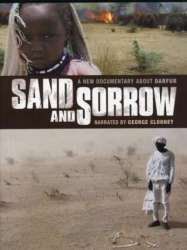
Sand and Sorrow (2007)
, 1h34Origin USA
Genres Drama, Documentary
Themes Films set in Africa, Documentary films about war, Documentary films about historical events, Documentary films about politics, Political films
Actors George Clooney, John Prendergast
Rating68%





Avec Darfour : du sable et des larmes, le cinéaste Paul Freedman, lauréat du Peabody Award, nous plonge dans la réalité de la situation au Darfour. Il s'est joint à un contingent des forces pour la paix de l'Union Africaine au Darfour, où l'une des pages les plus tragiques et perturbantes de l'histoire de l'humanité est en train de s'écrire. Alors que les hommes et les femmes de cette mission affrontent des conditions très dures et une violence sans limites, deux millions et demi de personnes déplacées n'ont pas d'autre choix que de trouver refuge dans des camps sordides. A ce jour, on estime que 400 000 civils ont perdu la vie.
 , 1h28
, 1h28Genres Documentary
Themes Documentary films about war, Documentary films about historical events, Documentary films about politics, Political films
Rating67%






Bougafer 33 (2010)
, 52minutesOrigin Maroc
Genres Documentary
Themes Films set in Africa, Documentary films about law, Documentary films about war, Documentary films about historical events, Documentary films about politics, Political films
Taking the expedition of a group of Frenchmen following in the tracks of their fellow countrymen as a starting point, Bougafer 33 is a journey through time and space that tells of the battle that took place in 1933 at the foot of the Bougafer Mountain during the war Morocco fought against the French-Spanish colonial conquest. Eyewitness accounts, stock footage, written tales and songs all contribute to reinstate the history of the last resistants of the Ait Atta. An epic ordeal of fierce and highly organized battles in which women and children took part in the name of freedom.
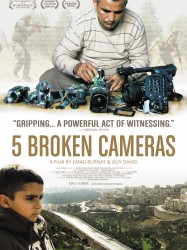
Five Broken Cameras (2011)
, 1h34Origin Israel
Genres Drama, War, Documentary, Crime
Themes Films set in Africa, Films about films, Films about religion, Documentary films about business, Documentary films about the film industry, Documentary films about law, Documentary films about war, Documentary films about historical events, Documentaire sur une personnalité, Documentary films about politics, Documentary films about religion, Political films, Films about Jews and Judaism, Documentary films about films
Rating78%





There are five cameras — each with its own story. When his fourth son, Gibreel, is born in 2005, self-taught cameraman Emad Burnat, a Palestinian villager, gets his first camera. At the same time in his village of Bil’in, the Israelis begin bulldozing village olive groves to build a barrier to separate Bil'in from the Jewish Settlement Modi'in Illit. The barrier's route cuts off 60% of Bil'in farmland and the villagers resist this seizure of more of their land by the settlers.
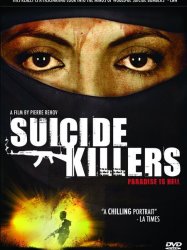
Suicide Killers (2006)
, 1h20Directed by Pierre Rehov
Origin USA
Genres Documentary
Themes Medical-themed films, Films about suicide, Films about terrorism, Documentary films about law, Documentary films about war, Documentary films about historical events, Documentaire sur une personnalité, Documentary films about politics, Documentary films about health care, Documentary films about terrorism, Films about psychiatry, Films about disabilities, Political films
Rating63%





 , 52minutes
, 52minutesOrigin Algerie
Genres Documentary
Themes Films set in Africa, Films about immigration, Documentary films about law, Documentary films about war, Documentary films about historical events, Documentaire sur une personnalité, Documentary films about politics, Political films
In 1939, the end of the Spanish Civil War forced thousands of men, women and children to flee Francoist Spain. The French administration in Algeria opened refugee camps to take them in. Seventy years later, a young Algerian investigates the past. Despite the absence of archives and files, the traces of these camps have survived the collective oblivion and still appear in current Algeria.

Strawberry Fields (2006)
, 1hOrigin Israel
Genres Drama, Documentary, Fantasy
Themes Films set in Africa, Environmental films, Films about religion, Documentary films about business, Documentary films about law, Documentary films about environmental issues, Documentary films about war, Documentary films about historical events, Documentaire sur une personnalité, Documentary films about politics, Documentary films about religion, Political films, Films about Jews and Judaism
Actors Mitsuki Tanimura, Yuria Haga
Strawberry Fields points out that strawberries grown in Gaza are the only agricultural product marketed internationally as being of Palestinian origin. One of the major Gaza strawberry farms in located at Beit Lahiya. More than 1,500 tons of strawberries are exported from Gaza to Europe through the Israeli company Agrexco. In order to get overseas, however, the fruits need to pass through the checkpoint that separates Israel and Gaza. The 2005–2006 growing season coincided with the Israel's disengagement from Gaza and the rise of Hamas as the ruling political entity. The armed conflict between Israel and Hamas resulted in the closing of the border checkpoint. The strawberries grown at Beit Lahiya cannot leave Gaza, resulting in significant losses for the farmers and their Agrexco partners. Unable to transport their produce, the farmers have no choice but to dispose of their crop and prepare for the following year’s growing season.
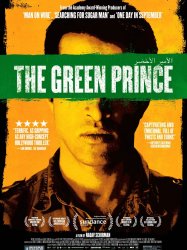
The Green Prince (2014)
, 1h41Genres Thriller, Documentary
Themes Films set in Africa, Films about religion, Documentary films about law, Documentary films about war, Documentary films about historical events, Documentary films about politics, Documentary films about religion, Political films, Films about Jews and Judaism
Rating71%





The film tells the story of Mosab, son of Hamas leader Sheikh Hassan Yousef, who for ten years was a spy for Israel's Shin Bet.
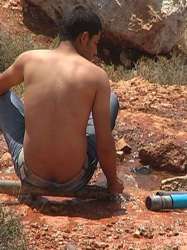
Interrupted Streams (2010)
, 1h15Origin Israel
Genres Documentary
Themes Films set in Africa, Environmental films, Films about religion, Documentary films about law, Documentary films about environmental issues, Documentary films about war, Documentary films about historical events, Documentaire sur une personnalité, Documentary films about politics, Documentary films about religion, Political films, Films about Jews and Judaism
Paths of lives are crossed in one village in the West Bank. Along the broken water pipelines, villagers walk on their courses towards an indefinite future. Israel that controls the water, supplies only a small amount of water, and when the water streams are not certain nothing can evolve. The control over the water pressure not only dominates every aspect of life but also dominates the spirit. Bil-in, without spring water, is one of the first villages of the West Bank where a modern water infrastructure was set up. Many villagers took it as a sign of progress, others as a source of bitterness. The pipe-water was used to influence the people so they would co-operate with Israel’s intelligence. The rip tore down the village. Returning to the ancient technique of collecting rainwater-using pits could be the villagers’ way to express independence but the relations between people will doubtfully be healed.
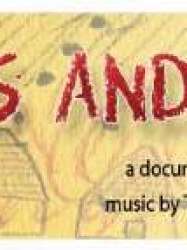
Crayons and Paper (2009)
, 30minutesOrigin USA
Genres Documentary
Themes Films set in Africa, Films about children, Seafaring films, Transport films, Documentary films about law, Documentary films about war, Documentary films about historical events, Documentaire sur une personnalité, Documentary films about politics, Political films
 Connection
Connection